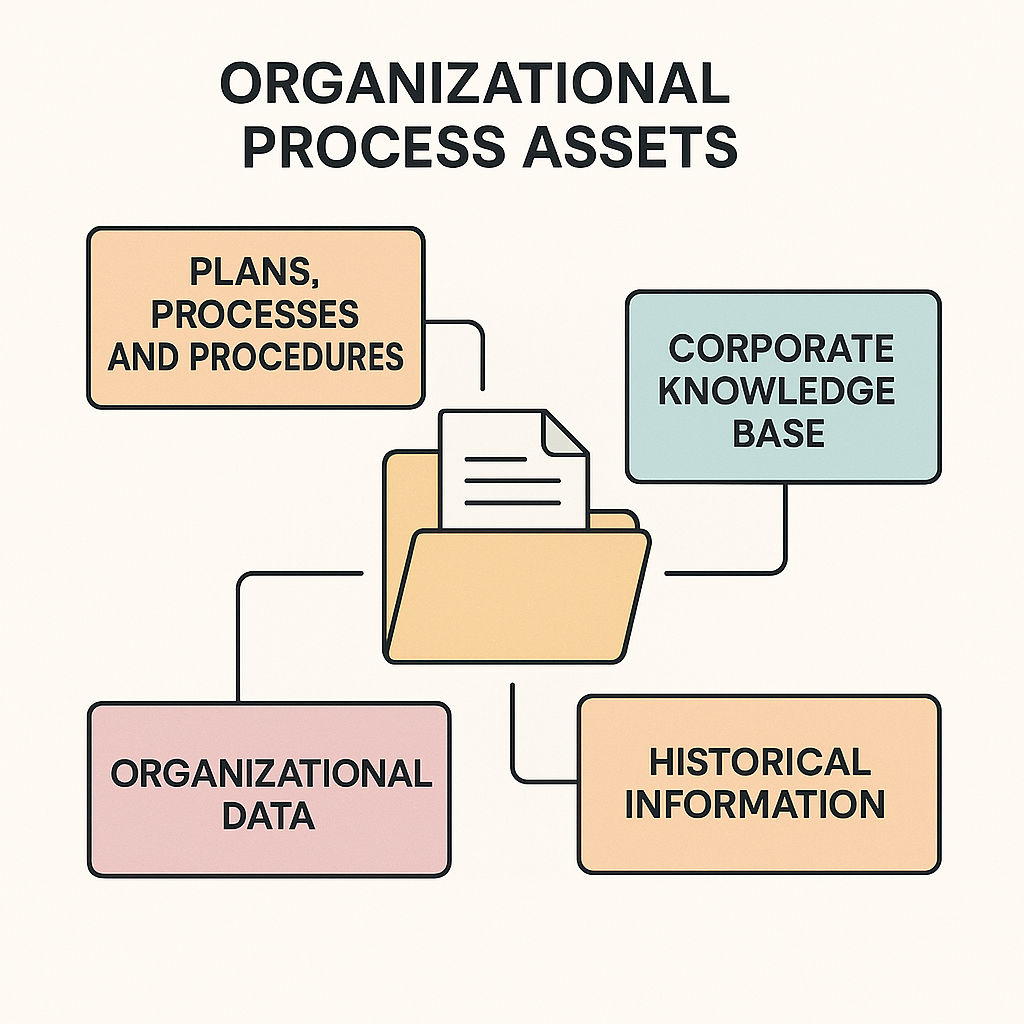
Organizational Process Assets (OPAs) are the tangible and intangible assets that an organization accumulates and utilizes to facilitate effective project management and support project execution. These assets represent the organization’s knowledge base, policies, procedures, templates, tools, and historical data related to project management. OPAs are unique to each organization and are used to influence and improve project outcomes across the organization.
Here’s a closer look at Organizational Process Assets:
- Policies and Procedures:
- Formal documented policies, guidelines, and procedures that govern project management activities within the organization.
- These may include project initiation processes, change control procedures, quality assurance standards, and risk management protocols.
- Standardized Processes:
- Established and standardized processes for project management, such as project planning, execution, monitoring, and control.
- These processes may be derived from industry standards, organizational best practices, or lessons learned from past projects.
- Templates and Forms:
- Pre-defined templates, forms, checklists, and documents used to facilitate project planning, execution, and documentation.
- Examples include project charters, work breakdown structures (WBS), project schedules, risk registers, and status reports.
- Organizational Knowledge Base:
- The collective knowledge, expertise, and lessons learned from past projects and experiences within the organization.
- This knowledge base may include historical project data, performance metrics, case studies, and post-project reviews.
- Historical Information:
- Data and information from previous projects, including project plans, schedules, budgets, risk logs, issue logs, and project documentation.
- Historical information provides insights into past project performance, successes, failures, and areas for improvement.
- Lessons Learned:
- Insights, observations, and recommendations derived from past project experiences and outcomes.
- Lessons learned are captured and documented to inform future project planning, decision-making, and risk management.
- Organizational Culture and Values:
- The organization’s culture, values, norms, and beliefs that influence project management practices and behaviors.
- Cultural factors may include the organization’s attitude toward risk, innovation, collaboration, and project success.
- Tools and Software:
- Project management tools, software applications, and technology platforms used to support project planning, scheduling, communication, and collaboration.
- Examples include project management software, collaboration platforms, document management systems, and reporting tools.
- Resource Pools:
- Pools of skilled resources, subject matter experts, consultants, or specialists available within the organization to support project activities.
- These resources may be allocated to projects based on availability, expertise, and project requirements.
- Organizational Assets:
- Physical and tangible assets owned or controlled by the organization that support project execution, such as facilities, equipment, infrastructure, and technology.
Organizational Process Assets serve as a valuable resource for project managers and teams, providing guidance, support, and lessons learned to improve project performance and increase the likelihood of project success. By leveraging OPAs effectively, organizations can streamline project management processes, enhance efficiency, and deliver higher-quality outcomes.
